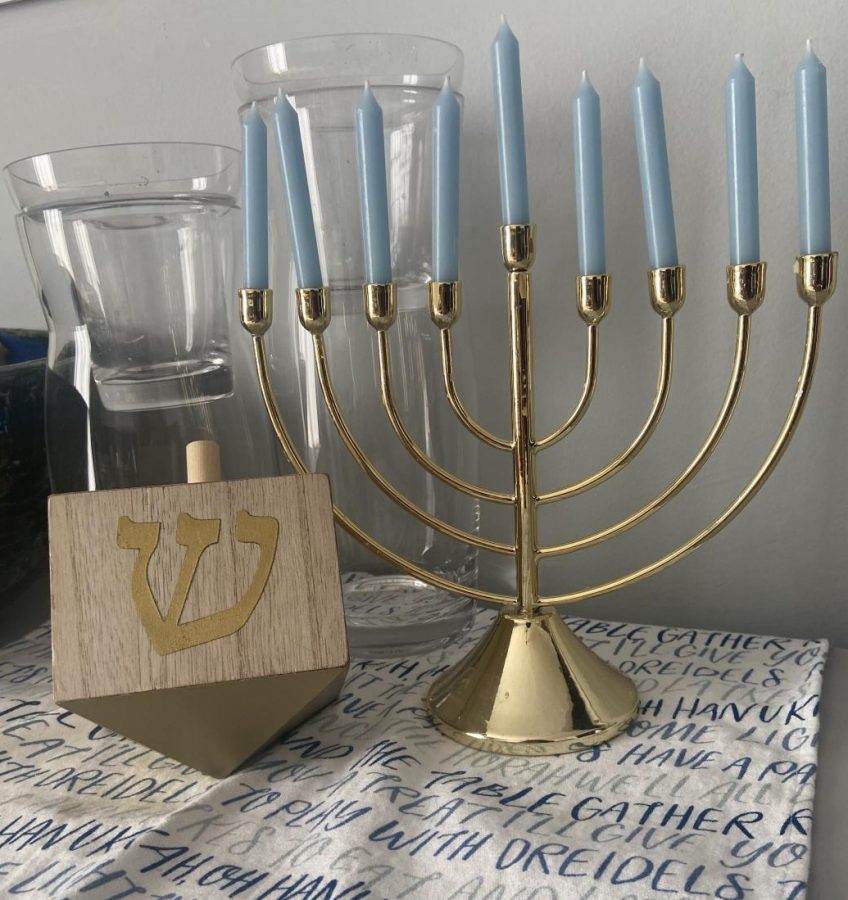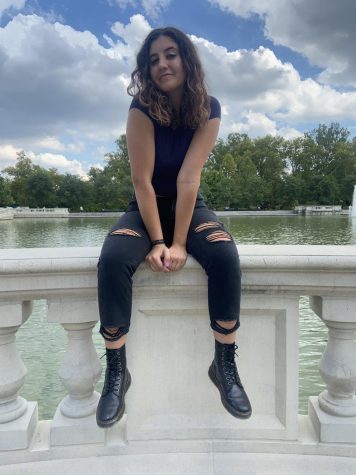Multicultural Holidays: There’s More to December Than Just Christmas
A menorah with 9 candles in it for the 8 days of Hanukkah and one that is used to light the other candles, as well as a dreidel used to play a Jewish game.
December 22, 2020
When thinking of December, a lot of people’s automatic thoughts go to Christmas and their family traditions, but there are other holidays celebrated in December, too. Hanukkah, Kwanza, and Boxing Day are just a few. And, diverse cultures celebrate holidays differently, even when they are technically the “same” holiday.
Christmas is the celebration of the birth of Jesus Christ, with origins in Christianity. Many other traditions are associated with Christmas as well, particularly exchanging gifts on the morning of December 25.
Some families exchange one gift the night before, put up trees or lights, or get together with family. Christmas can also be celebrated differently if your family has a tradition, like making cookies, or having to listen to “Jingle Bells” during dinner.
In other cultures, however, Christmas is celebrated differently. Some families that are Hispanic celebrate by making tamales or by making Rosca de Rayes (Three Kings Bread), a bread that has a small toy hidden within the loaf. The person who gets the toy gets to open a present at midnight, although some cultures do it differently.
Stockings and baking cookies for Santa are traditions that seem to vary, as well.
Junior Chloe Kerwin describes how her family bakes and does stockings. Kerwin says, “Me, my sister, and my mom put our stockings up and we open the gifts in the stockings on Christmas Eve. It’s usually candy, gift cards, mostly little clothing items like socks or headbands.”
She also notes that “on Christmas, I don’t do the baking at my house because I can’t bake for my life.”
Hanukkah is another holiday celebrated in December. It is an eight-day long celebration of the rededication of the Second Temple in Jerusalem. The people that were at the rededication only had enough oil to burn for a light source for one night but by what is referred to as a miracle, the oil lasted for eight days instead.
The dates of Hanukkah change each year because Hanukkah is based on the Hebrew Calendar and starts on the same day as the Hebrew calendar, which is different from the calendar used today.
“It’s a really hopeful holiday. You light a candle and it lights up the dark, and this has been a pretty dark year, so it’s been significant this year,” Ms. Moritz comments on her celebrations of Hanukkah and what it means to her and her family. Playing dreidel, a betting game within Jewish culture, is often a part of Hanukkah, as well as giving chocolate coins to family members.
Kwanzaa is an African holiday that celebrates different principles in African culture as well as “first fruit” harvests. It is a seven-night long holiday in which a candle is lit and one of the seven principles is discussed each night.
There is then a feast on December 31 known as the Karamu. Some traditions can include playing African drums, storytelling, poetry readings, and a large meal.
“We have candles and we light one each day for seven days and we light the first black candle to represent unity of family. It means a lot in terms of unity and just brings African ancestry out into the open,” sophomore Kenedi Jenkins comments on her celebration of Kwanzaa.
This year, holiday celebrations are different. Getting together with family or going out of town isn’t necessarily safe or an option for some people because of the pandemic. 2020 will be like no other but it can be special by having you and your family at home doing your traditions and developing some new ones along the way.


